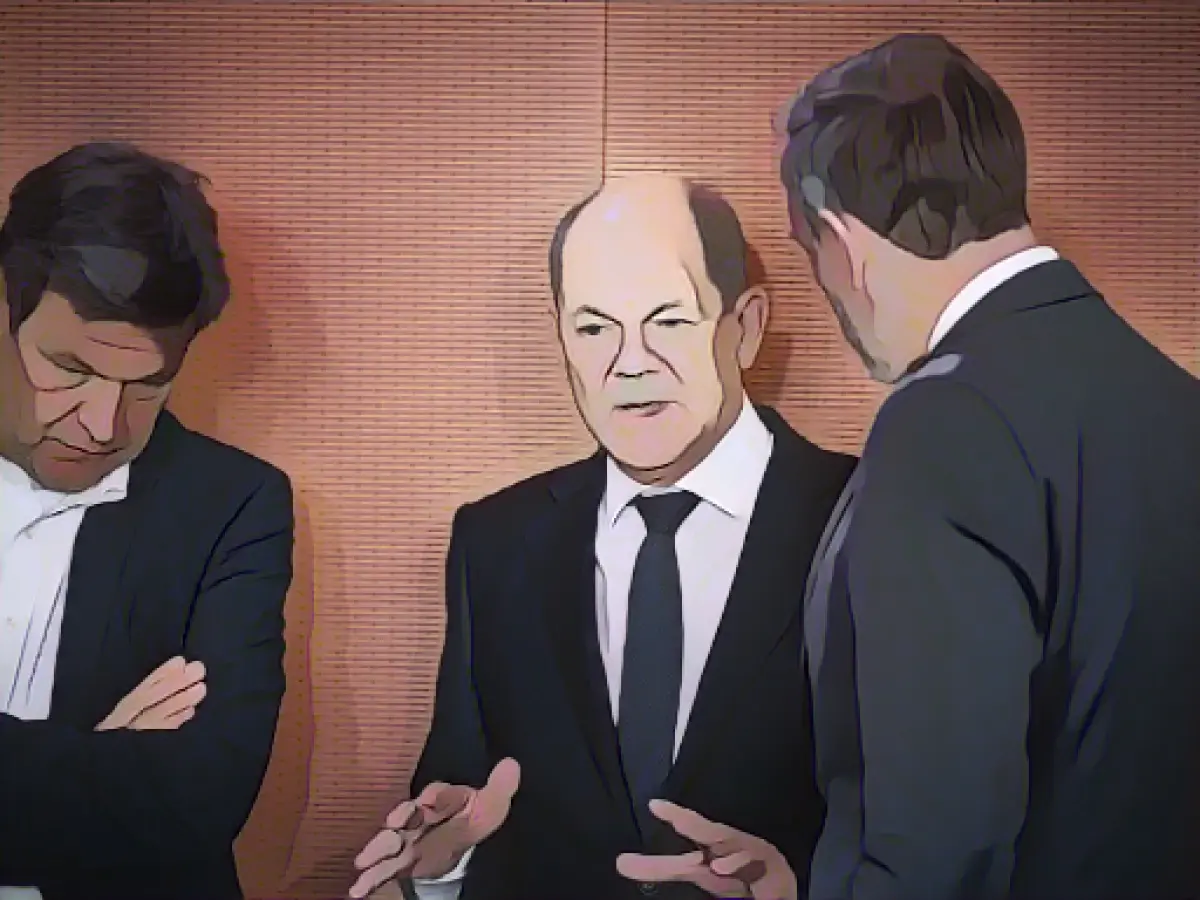Budget funds blocked - discussion about debt brake
Following the Federal Constitutional Court's budget ruling, the Federal Ministry of Finance (BMF) is blocking numerous items in the federal budget. "The BMF is stopping the commitment appropriations in 2023 in order to avoid advance charges for future years," said ministry circles on Monday evening. This affects the budgets of all ministries.
A commitment appropriation allows an administration to enter into payment obligations for future years, for example for multi-year projects. Current expenditure this year is therefore not affected.
It was also stated that existing liabilities would continue to be honored, but that no new ones could be entered into. "In exceptional cases, commitment appropriations can be unblocked."
Struggling to deal with the ruling
The traffic light coalition continues to struggle over how to deal with the ruling from Karlsruhe. The SPD is reiterating its calls for the debt brake to be suspended in order to plug the 60 billion euro financial hole. Federal Economics Minister Robert Habeck (Greens) is also not an advocate of the debt brake, but does not see any majorities for changes.
Last week, the Federal Constitutional Court declared the reallocation of 60 billion euros in loans in the 2021 budget null and void. They had been approved to tackle the coronavirus crisis, but were to be used for climate protection and modernizing the economy. Now the billions in the so-called Climate and Transformation Fund are not available. As a result, the German government had already temporarily put certain projects on hold that were to be financed from the fund. This involved commitment appropriations for 2024 and subsequent years.
Today, experts are to help the Bundestag and the Federal Government to correctly interpret the consequences of the Karlsruhe budget ruling. The Budget Committee will hear experts appointed by the various parliamentary groups. The main issue will be whether the budget for 2024 can be adopted despite the ruling.
Mützenich wants the debt brake to be suspended
In order to mitigate the effects of the budget ruling, SPD parliamentary group leader Rolf Mützenich believes it is necessary to suspend the debt brake - at least for 2024. "In my view, we will not be able to avoid applying the exemption rule for 2024 - possibly even longer," Mützenich told Stern magazine. "The tasks facing us will not be completed next year. There are huge challenges ahead of us, in terms of climate change, the new industrial policy, but also in terms of foreign policy." SPD leader Saskia Esken had previously called for the debt brake not to be applied in 2023 and 2024.
Federal Economics Minister Habeck considers the debt brake in its current form to be outdated, but does not see any majorities in favor of reform. "I personally make no secret of the fact that I think the way the German debt brake is constructed is not intelligent enough," Habeck said on ARD's Tagesthemen on Monday evening. It is "very static" and does not differentiate between money that is spent over the course of the year and investments in the future that only pay off years later. The Green politician said that this seemed unwise to him.
The debt brake "was also built in a different time, when we always had cheap gas from Russia, when China was always our workbench or our purchasing market, when the Americans were always reliable, loyal friends and took the military burden off our shoulders because there was no war in Europe," said Habeck. These conditions have changed.
Nevertheless, the debate about the debt brake would not help this year. "There is a coalition agreement, the coalition partner and also the opposition have made it clear that they do not share my opinion and that of many others, of many economists. In this respect, this is probably a decisive debate for the future, perhaps a very decisive one. For the present, we will have to find the money differently," said the Economics Minister.
Bartsch proposes "climate wealth tax"
One proposal came from the leader of the Left Party, Dietmar Bartsch - he called for a "climate wealth tax". "After the ruling from Karlsruhe, there must be no social cuts to plug the 60 billion hole," Bartsch told Redaktionsnetzwerk Deutschland (Tuesday). Not the "little people", but multi-millionaires and billionaires should be called upon to modernize Germany. Further savings could be made in the special fund for the Bundeswehr, which the Left rejects. It should be put to the test and reduced accordingly, demanded Bartsch.
- In response to the budget ruling, Rolf Mützenich from the SPD suggests suspending the debt brake for at least 2024 to mitigate its effects, as he believes it will be challenging to complete necessary tasks within that timeframe.
- Saskia Esken, the SPD leader, previously advocated for not applying the debt brake in 2023 and 2024. This debate comes as the German government is dealing with a 60 billion euro financial hole, following the Karlsruhe Constitutional Court's nullification of loan reallocations approved for coronavirus relief.
- Dietmar Bartsch, the Left Party leader, proposes a "climate wealth tax" as a solution to fill the 60 billion euro gap. This tax would potentially target multi-millionaires and billionaires towards modernizing Germany.
- The debates regarding the debt brake and its potential reform are not immediate priorities for Robert Habeck, the Federal Economics Minister, as he does not see the necessary majorities for change this year. Nevertheless, Habeck considers the current debt brake structure outdated and not flexible enough to account for future investments.
Source: www.dpa.com








